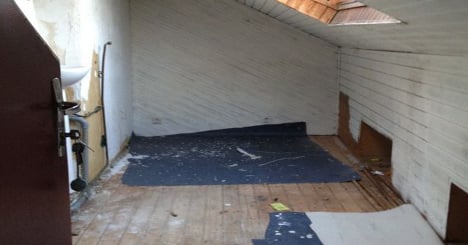The room in the city’s Malagnou neighbourhood was advertised through the Immoscout real estate website, raising concerns about the need to combat abusive rents, the Tribune de Genève reported online.
The space advertised for rent is not legally large enough to qualify as a room in the canton of Geneva, according to regulations that stipulate a room must be at least nine square metres in size.
Any space smaller than that qualifies as a “half-room”.
The Tribune de Genève telephoned the subletter who said the space had already been let to a “young girl . . .who agrees with the rent and is happy with the situation”.
The sub-letter added that the woman “has the right to use the the bathroom and the kitchen”.
Asloca, the tenants’ rights association, said the rent is clearly abusive.
“In this type of case, it is necessary to contest it,” Asloca lawyer Damien Chervaz told the Tribune.
“This is equally applicable in the case of a sublet and at any time,” Chervaz said.
“Often (tenants who sublet) are unaware of this.”
The Geneva real estate chamber was equally appalled by the rent charged for the closet-like space.
“To sub-let at abusive prices is inadmissable,” the chamber’s secretary-general Anne Hitpold, also a lawyer, told the Tribune.
She also indicated that such rental rates should be contested.
Geneva law forbids sub-letting apartments for personal profit.
And a person subletting an apartment is legally required to notify the landlord.
The penalties can be heavy for those caught violating the regulations.
In April, a tenant in Geneva was ordered by Switzerland’s top court to reimburse the owner of an apartment 275,000 francs ($293,000) after he sublet it at an abusive rate.
The apartment was sublet for several years to India’s permanent mission to the United Nations.
To get an idea of how small the Geneva "half-room" apartment is, check out this YouTube video, which shows a shoebox apartment in Manhattan almost 50 percent bigger:



 Please whitelist us to continue reading.
Please whitelist us to continue reading.
Member comments